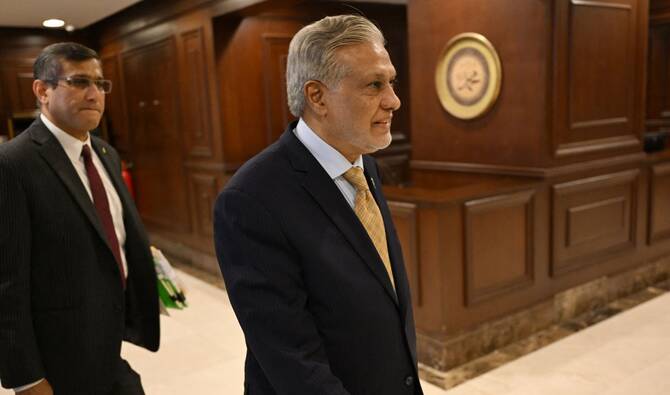Deputy Prime Minister and Foreign Minister of Pakistan, Senator Ishaq Dar, represented Pakistan at the Shanghai Cooperation Organisation (SCO) Council of Foreign Ministers meeting held in Beijing on July 15, 2025. The meeting, a vital diplomatic forum under the SCO umbrella, brought together foreign ministers from member countries to discuss strategies for deepening regional cooperation, addressing common challenges, and enhancing multilateral relations.
Ishaq Dar arrived in Beijing on the evening of July 14, where he was welcomed by senior officials from the Chinese Ministry of Foreign Affairs, Pakistan’s ambassador to China, and members of the diplomatic corps. His participation in the SCO meeting marked a continued effort by Pakistan to play an active role in regional diplomacy and multilateral forums that impact the stability and development of the broader Eurasian region.
During his visit, Ishaq Dar joined other foreign ministers for a joint meeting with Chinese President Xi Jinping at the Great Hall of the People. In his remarks to President Xi, Dar conveyed greetings and goodwill from the government and people of Pakistan. He reaffirmed Pakistan’s unwavering commitment to strengthening its “all-weather strategic cooperative partnership” with China and emphasized that both countries are united in their vision for peace, economic growth, and regional connectivity.
President Xi, in turn, praised the strategic trust and consistent collaboration between Pakistan and China. He highlighted the growing importance of the SCO as a stabilizing mechanism for the region and encouraged member countries to work together to safeguard shared security, promote economic prosperity, and deepen cultural ties.
Following the meeting in Beijing, Dar traveled to Tianjin to participate in the formal sessions of the SCO Council of Foreign Ministers. As one of the highest decision-making bodies within the SCO framework, the Council of Foreign Ministers is responsible for reviewing the regional and international landscape, preparing for the annual Council of Heads of State summit, and setting the tone for the organization’s future agenda.
The Tianjin session focused on several strategic priorities, including regional security cooperation, cross-border trade enhancement, counterterrorism efforts, cyber defense collaboration, and cultural diplomacy among member states. Ministers also reviewed the implementation of past SCO decisions and discussed the expansion of economic corridors, particularly in the context of regional connectivity initiatives.
On the sidelines of the official proceedings, Ishaq Dar held bilateral meetings with the foreign ministers of Iran, Uzbekistan, Belarus, Kazakhstan, and Kyrgyzstan. These meetings were centered around boosting bilateral ties, increasing cooperation in energy, trade, and education sectors, and coordinating efforts for sustainable development within the SCO framework.
Dar emphasized Pakistan’s proactive role in supporting peace initiatives, resolving conflicts through diplomacy, and strengthening economic cooperation through platforms such as the China-Pakistan Economic Corridor (CPEC), which aligns closely with the SCO’s goals of interconnectivity and integrated growth.
Pakistan’s involvement in the SCO continues to be an integral component of its foreign policy, as the organization encompasses major regional players including China, Russia, India, and Central Asian republics. As the region faces complex challenges related to security, energy needs, and economic competition, Pakistan seeks to leverage its geographic location and diplomatic channels to be a bridge between South, Central, and East Asia.
Looking ahead, the Council of Foreign Ministers meeting in Tianjin sets the stage for the upcoming SCO Heads of State Summit scheduled from August 31 to September 1, 2025. Pakistan’s active participation in the summit is expected to further reaffirm its commitment to cooperative regionalism, economic interdependence, and multilateral engagement.
Dar’s representation at the SCO meeting not only underscores Pakistan’s strategic alignment with regional powerhouses but also reflects its ongoing diplomatic efforts to secure peace, economic growth, and mutual understanding across the region.



Comments (0)
No comments yet. Be the first to comment!
Leave a Comment